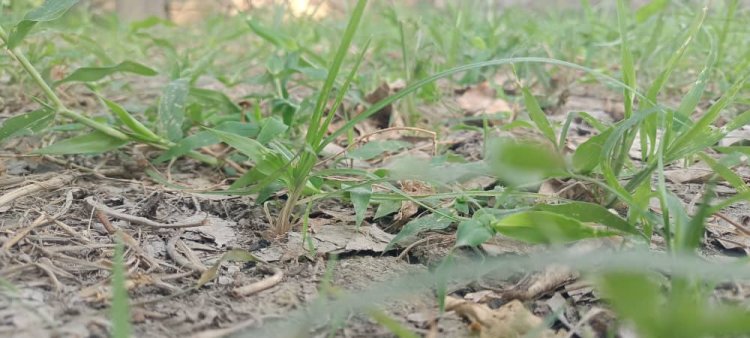Climate Change Seriously Threatens Agriculture in Afghanistan

Climate change, currently considered one of the most pressing global challenges, has taken the form of a severe crisis in Afghanistan, putting the country’s agriculture under serious threat.
Farmers in several provinces say that rising temperatures, decreased rainfall, and recurring droughts have severely affected Afghanistan’s traditional agricultural systems, endangering the livelihoods of Afghan farmers.
Faiq Shah, a farmer from Logar province, says that over the past few years, droughts have halved the yields of crops like wheat, corn, beans, tomatoes, and others. According to him, sudden rains, extreme heat, and the degradation of grazing lands caused by climate change have destroyed agricultural products.
Faiq Shah added: “This year we planted beans, wheat, and tomatoes on our land, but due to water shortages, they didn’t grow properly. Last year we harvested 60 man (around 280 kg) of wheat per jerib (a local unit of land), but this year the yield dropped to 35 man. The reasons are lack of water, untimely rain, and natural disasters.”
The ongoing drought has damaged orchards, farmlands, and trees not only in Logar but also in other provinces of the country.
Mohammad Munir, a farmer from the Muqur district of Ghazni province, voices similar concerns, stating that climate change has challenged agriculture and livestock farming in the province more severely than ever before.
According to him, prolonged drought and unpredictable weather changes have dried up green orchards and farmlands due to a lack of water. He says many people have been forced to migrate to other areas within the province in search of alternative means to meet their daily needs.
He said: “We no longer have abundant water like before to irrigate our crops. We used to draw water from karez (underground canals) and wells using solar or generator-powered pumps, but now those too are drying up, so people have been compelled to relocate to other parts of Ghazni.”
This farmer added that drought, reduced rainfall, and dropping water levels have caused severe damage to both agriculture and livestock, hitting farmers harder than ever. Haji Gulzada, a pistachio orchard owner in Uruzgan province, says that half of the pistachio orchards in the province have been destroyed this year due to drought.
He noted that compared to last year, pistachio yields have significantly dropped, and the lack of water has led to the loss of nearly half of the orchards, causing them considerable financial damage.
He said: “This year the drought is much worse than last year. At least last year we had water in the karez and wells for some time, and we used it to irrigate our orchards and crops. But this year even those water sources have dried up, so we couldn’t water the orchards, which is why pistachio and other crop yields have declined. The losses have all fallen on the farmers.”
Meanwhile, environmental experts say that climate change has had a negative impact on agriculture in Afghanistan. Environmental specialist Engineer Hayatullah says the reduced rainfall over recent years has harmed the environment, agricultural production, and people’s lives. According to him, given the severity of climate change, urgent action is more necessary now than ever.
He said: “Afghanistan is the 10th most affected country in the world by climate change. But unlike other parts of the world, nothing has been done here to combat climate change. There’s an urgent need to develop plans, build small water reservoirs, control river water, and raise public awareness among farmers about climate change.”
He stressed that to mitigate the negative effects of this crisis, it is crucial to develop precise strategies, invest in agricultural infrastructure, promote new farming techniques, and enhance the technical and financial capacities of farmers.
Despite facing numerous climate challenges, there is still hope. Experts believe that with the right approaches and proper management, Afghanistan can overcome this crisis and save its agricultural sector.
